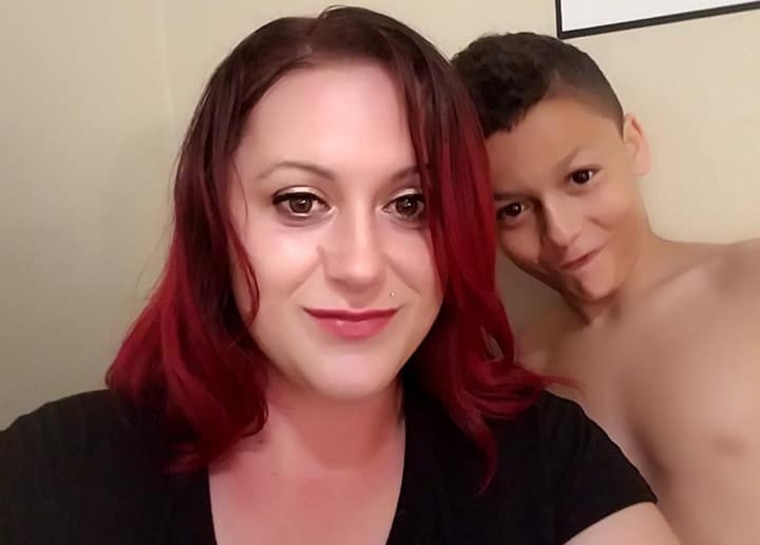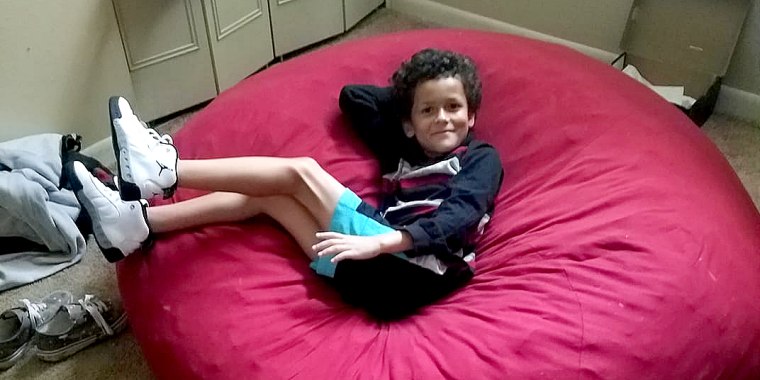As his mom, Leia Pierce, drove him and his siblings home, Jamel Myles casually told her “I’m gay.” Recalling the story in an interview with NBC News, Pierce noted that everyone “thought he was playing,” only he repeated the declaration. For Pierce, the response was easy: “I still love you,” she told him. “And he smiled, and he said he loved me too, and we just kept going," she said.
Myles was under the age of 10, and his self-awareness was not anomalous. I knew I liked boys more than girls by the age of six, only I wasn’t fortunate enough to have a mother who would simply shrug her shoulders about her son being gay.
Unfortunately, Leia Pierce is now blaming herself for the suicide of her nine-year-old son. Speaking with the BBC, Pierce explained, “I feel responsible because as a mother, I should have felt his pain. I should have knew he was hurt and I didn't, and I feel responsible because I didn't see the pain in my baby's eyes.”
She of course is in no way responsible: The pain that hurt her son is the pain that has impacted so many queer people, no matter our age. That pain is rooted in the notion that who we are is inherently wrong — so wrong that it is fine to ridicule, harass and debase us because well, we’re aberrations, after all. This pain can prove so severe that some of us see no way out of it other than letting our lives go altogether.
Nearly a decade ago, I wrote about Carl Walker-Hoover and Jaheem Herrera, two other pre-teen children who, like Jamel Myles, were bullied and taunted with anti-gay speech, and ultimately decided to kill themselves. At the time, I was 25 years-old and, while out to my friends, did not want to reveal that part of myself in my work. Yet, their deaths haunted me; I didn’t want any more kids like me to die.
I knew what it’s like to want to die, so I believed, even if was only a modest contribution, I could lend my story to show other gay kids and teens that life can indeed get better if you just hold on a little longer. The end result meant having to come out to my mom, but also writing more about my life.
Now, after publishing a book this summer chronicling much of that journey, I am haunted by the final sentence of that long-ago piece: “I would tell them that despite how bad things might feel for them now, tolerance is on their side, and that in their lifetime, for their generation, things will be much better than mine.”
And, since 2009, much progress has been made — but if we live in a world in a which a nine-year-old boy can be confident enough to tell his mom that he is gay and be affirmed by her, only to have that self-acceptance stripped of him by other kids, how far along are we really?
In terms of tolerance, this week’s news cycle alone is frustrating: Recording artists Doja Cat and Caresha Brownlee of the rap duo City Girls have had to apologize for homophobic posts made on social media (although Brownlee maintains that nothing is homophobic about not wanting her son to be gay). It was only a few months ago that writer Quinn Norton's use of the word “faggot” was revealed (after she was invited to join the New York Times editorial board) and she defended its usage.
Her response: The slur still a part of popular discourse in some communities.
Further, despite previous claims of being a “real friend” to the LBGTQ community, anti-LGBTQ violence has risen sharply under the Trump administration. The administration did not officially recognize Pride month, has sought to ban trans people from serving in the military and Vice President Mike Pence's anti-gay positions have long been made clear.
These are all testaments to the stamina of bigotry and cruelty. Jamel Myles might have had all the self-awareness in the world, it's an open question whether the world he recently departed provided enough safe havens for him.

In time, I hope Leia Pierce had move past her guilt and redirect it where it belongs: To the bigots, and those who are complicit in bigotry. Those children who taunted her sweet, bright child learned their homophobia from somewhere.
Indeed, just last year, a young child in my own family let out an “eww” when she heard the word "gay." I had to the explain that I was gay, and how her reaction was not okay. I later learned that she cried over our conversation, worried that she deeply hurt my feelings. Children are innocent in that way; it’s the adults who corrupt them. She, like many kids, merely needed an education, and not enough folks in this world seemingly care enough to have a conversation about the respect for and dignity of queer people.
I’m deeply sorry that not enough people offered similar corrections to the kids who bullied Jamel Myles. I am sad that his inner turmoil didn’t end in the car ride with his mom, the way it should have. I hate that I am still writing about gay children who apparently think that the only way out of the bullying is to end it all.
Still, no matter the hurt or level of frustration, and in spite of my own moments of doubt in situations like these, I know that I have to continue to believe things will get better — but that better will take greater effort from each of us. As Jacque Miller, Jamel Myles’ grandmother, explained to the New York Times, “The statement that it takes a village to raise a child is true. And the village is broken.”

